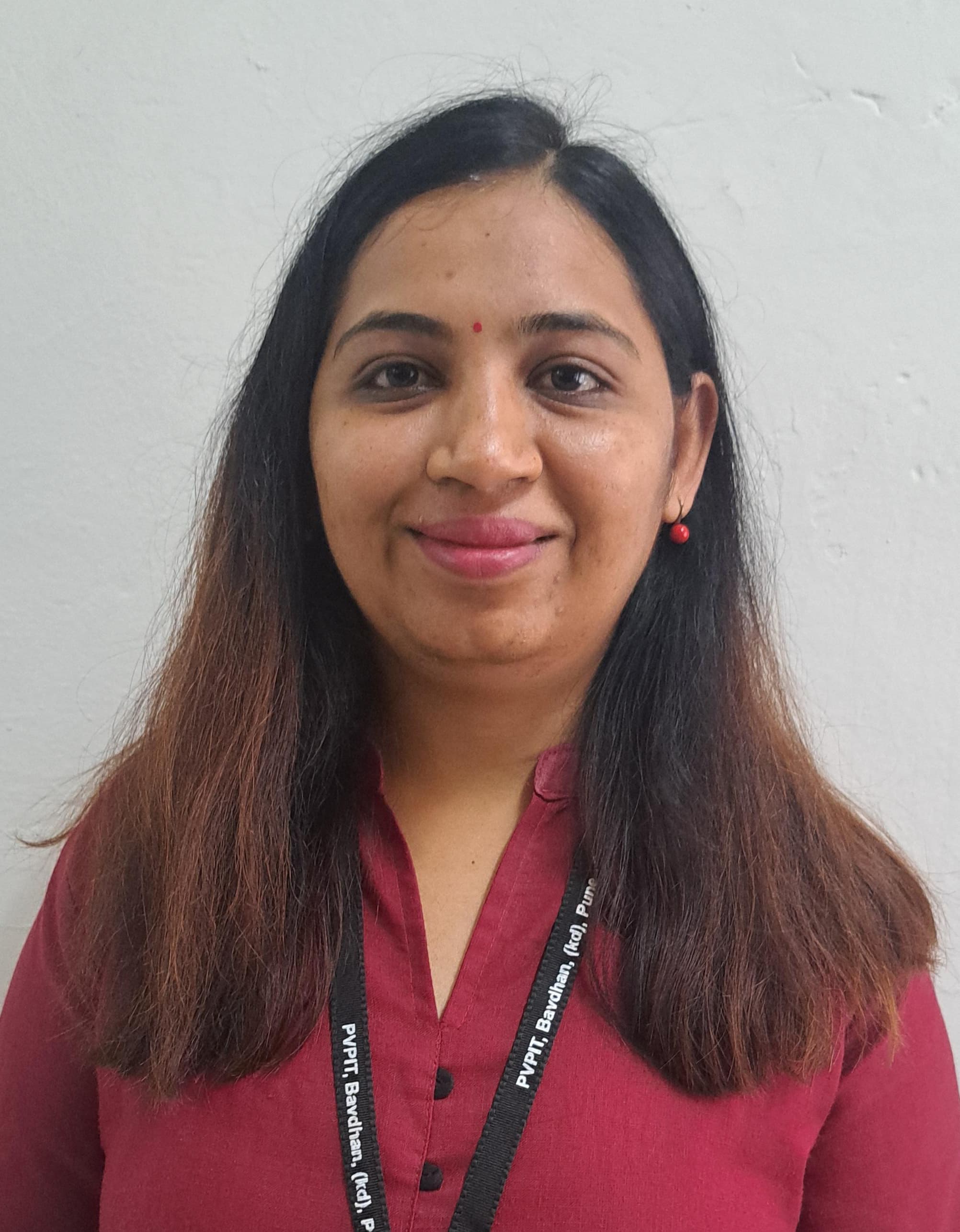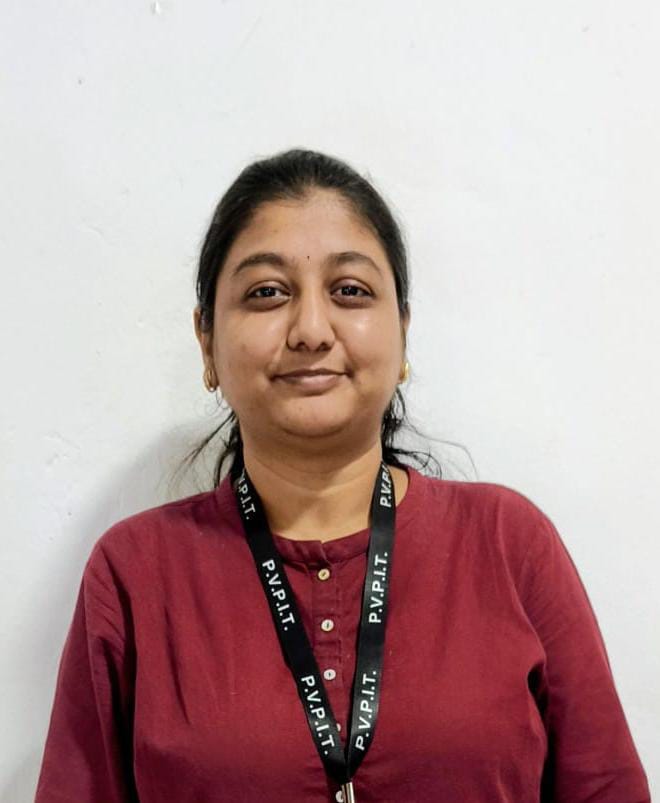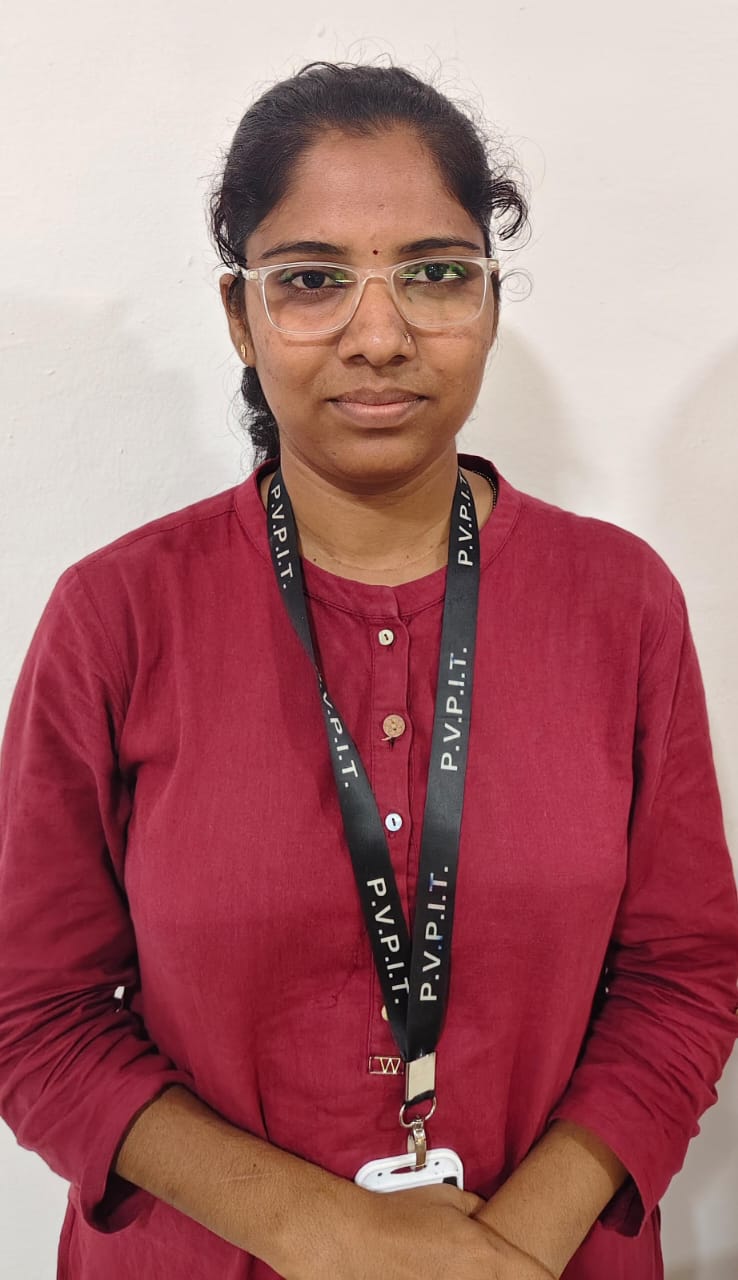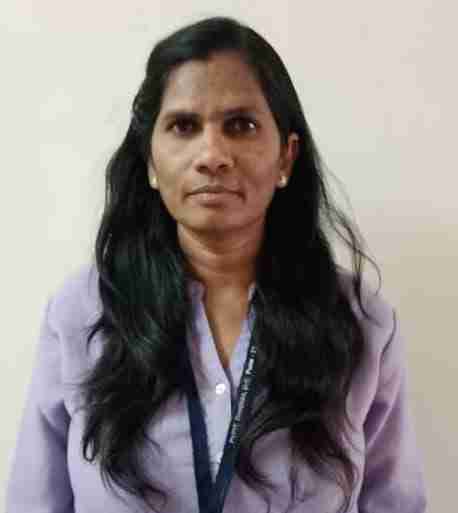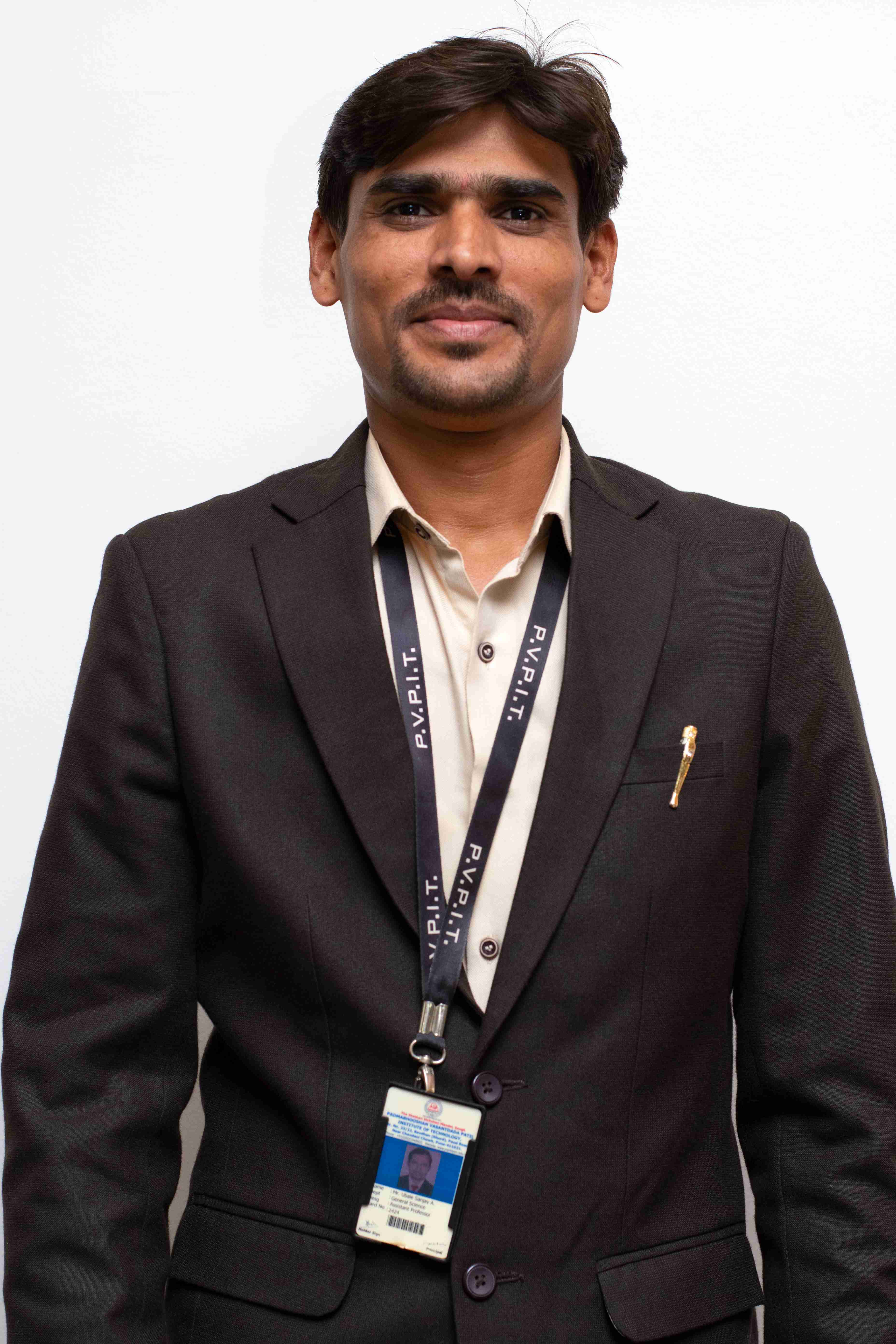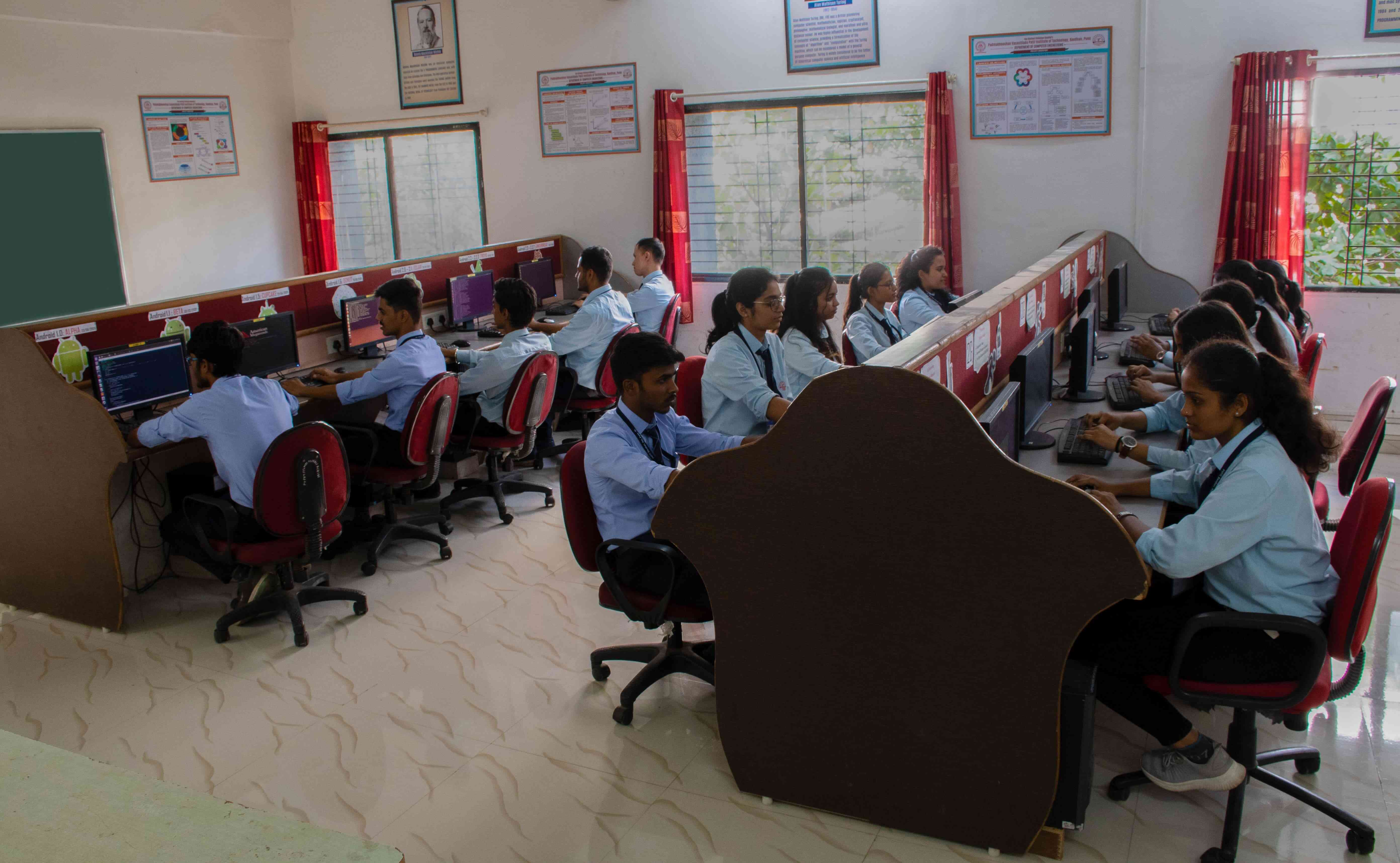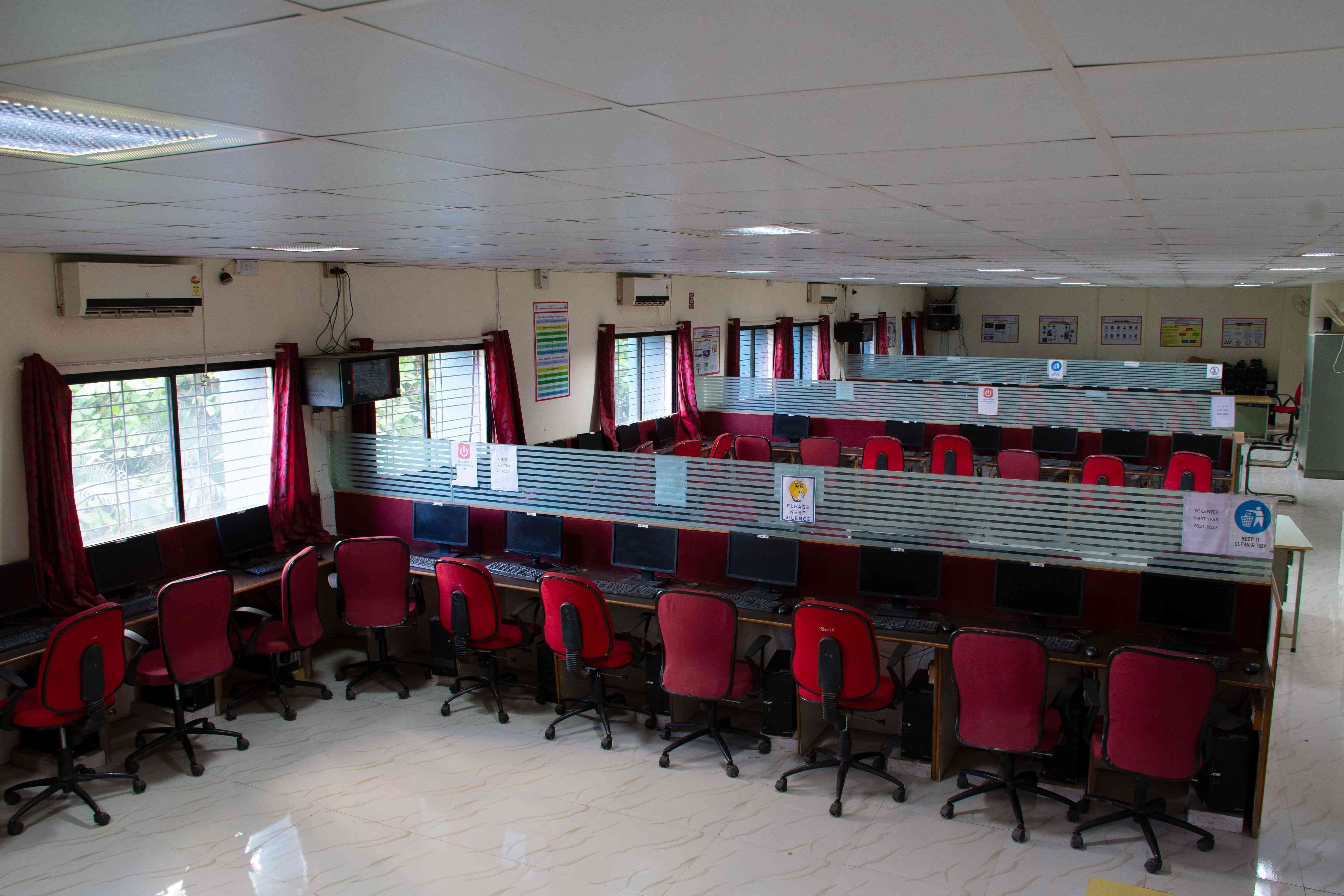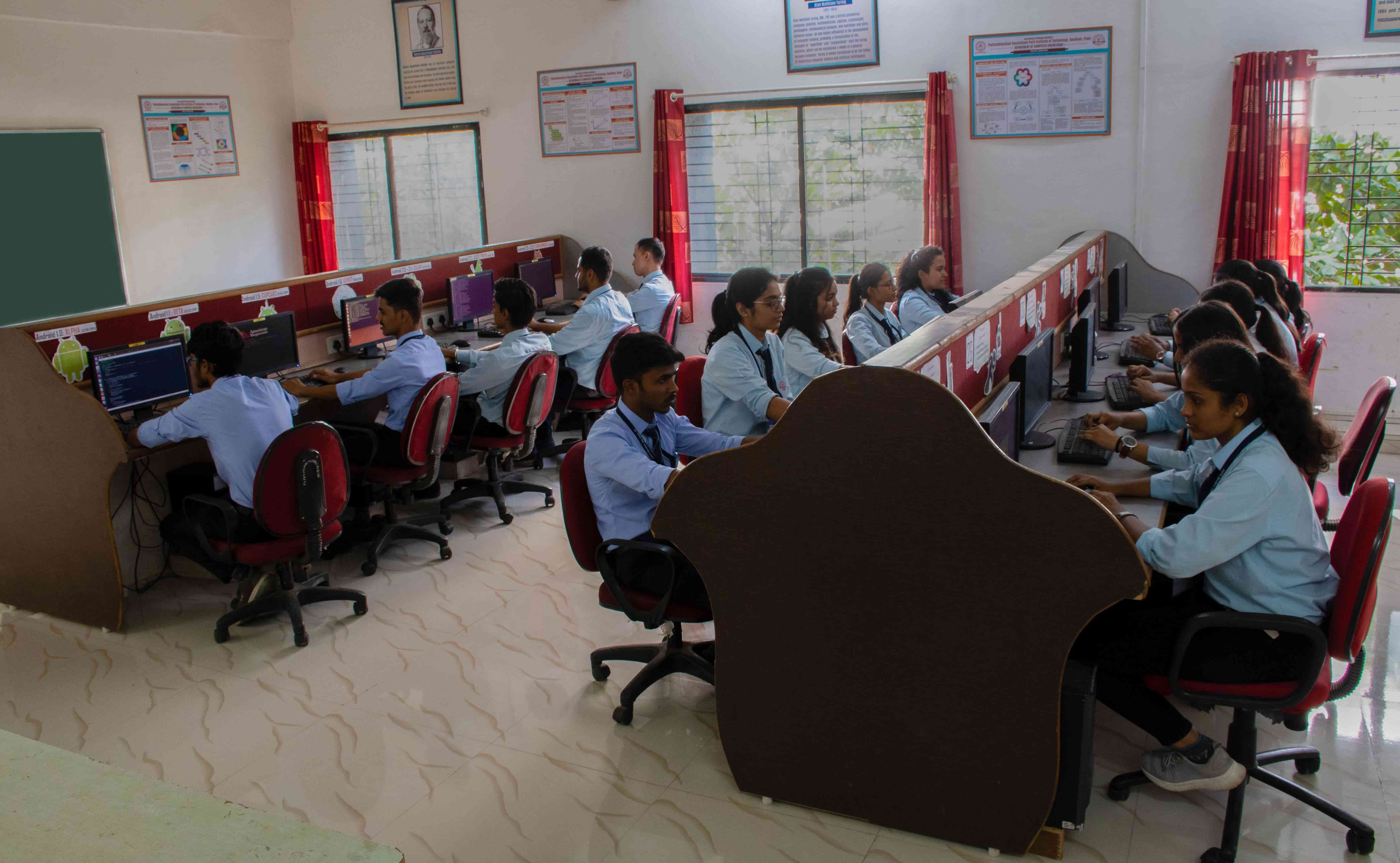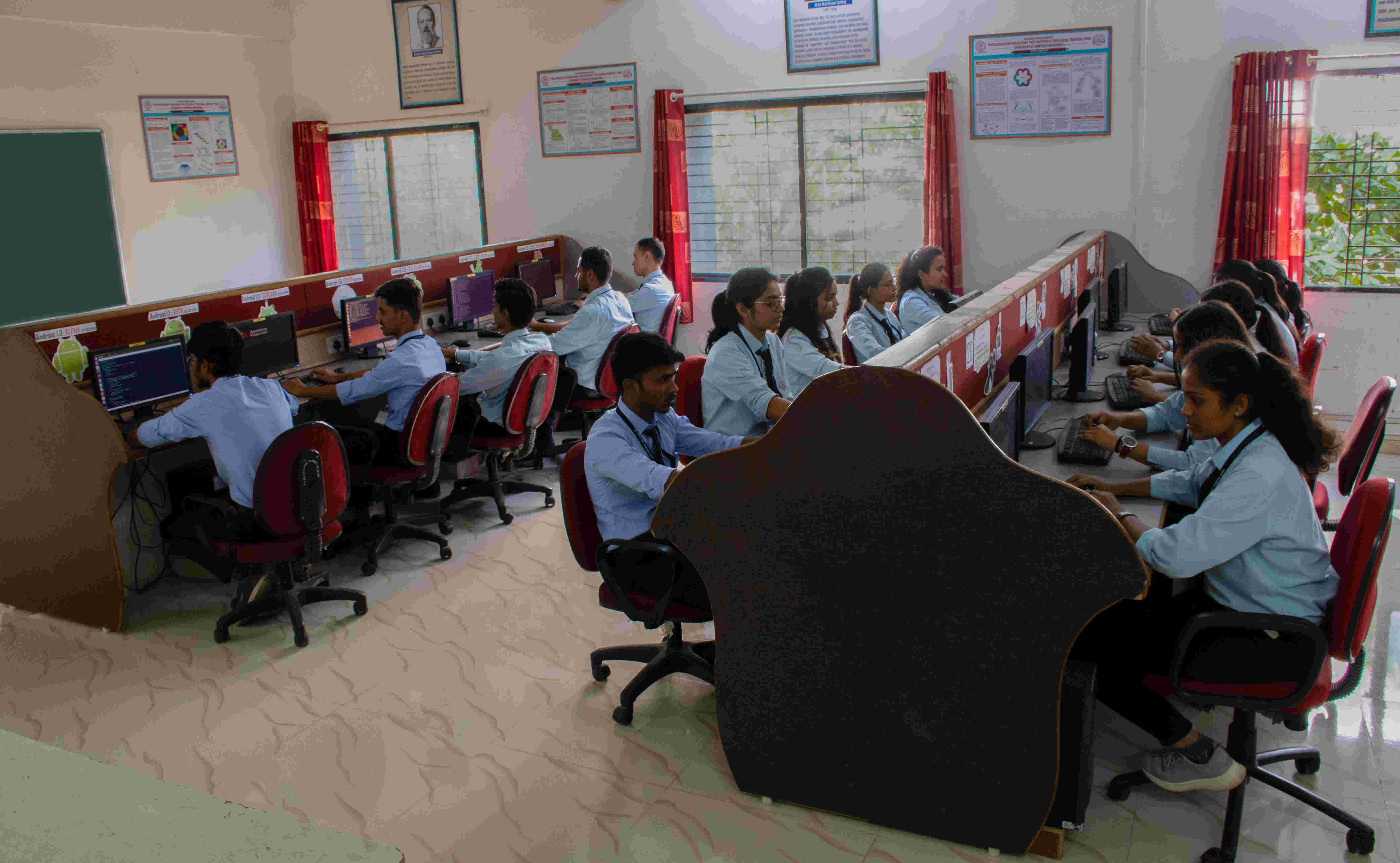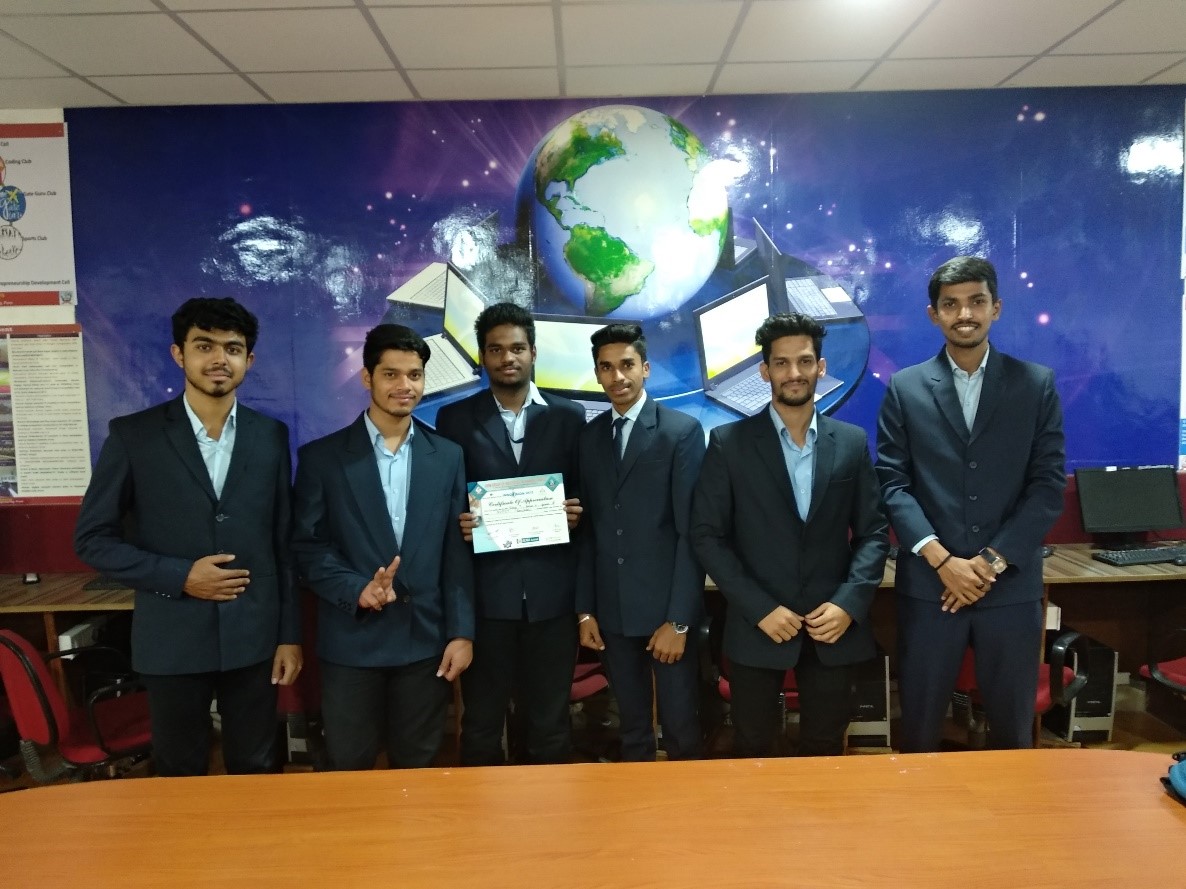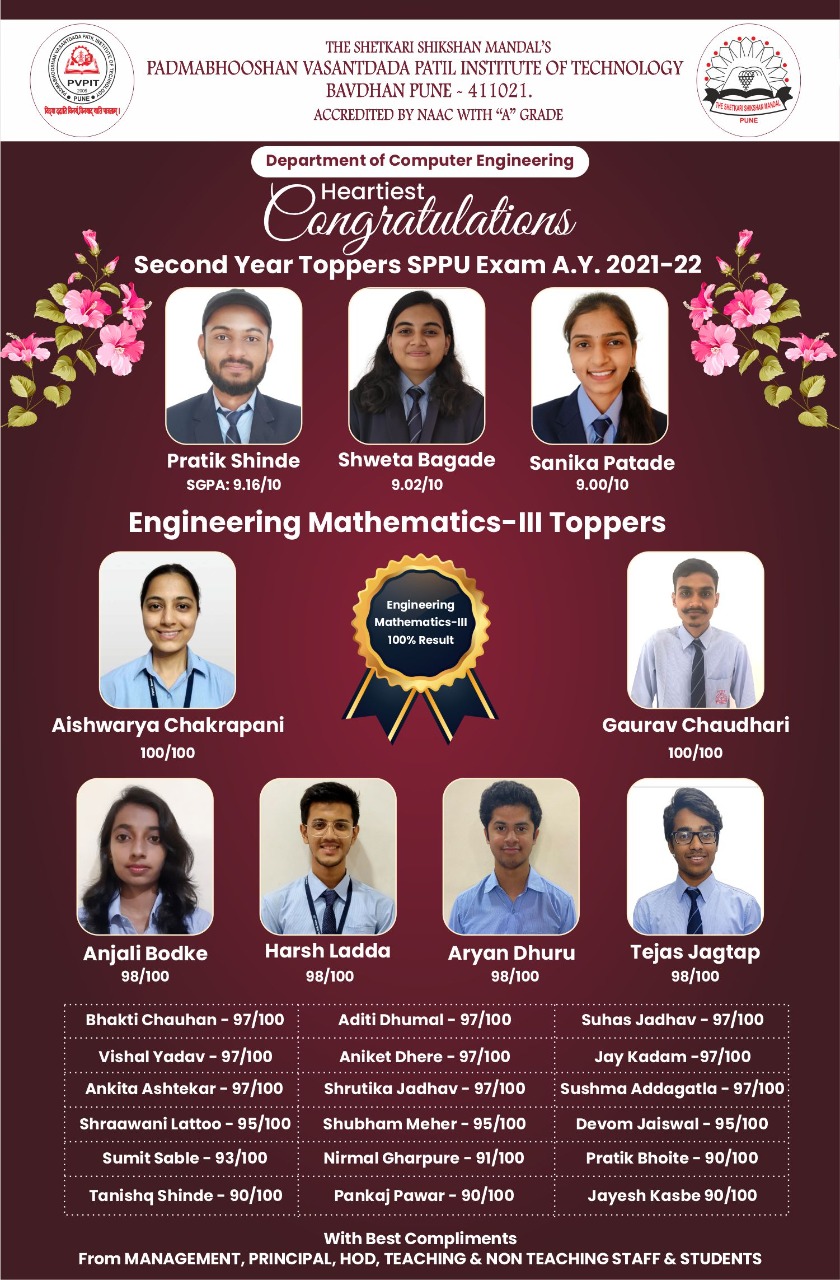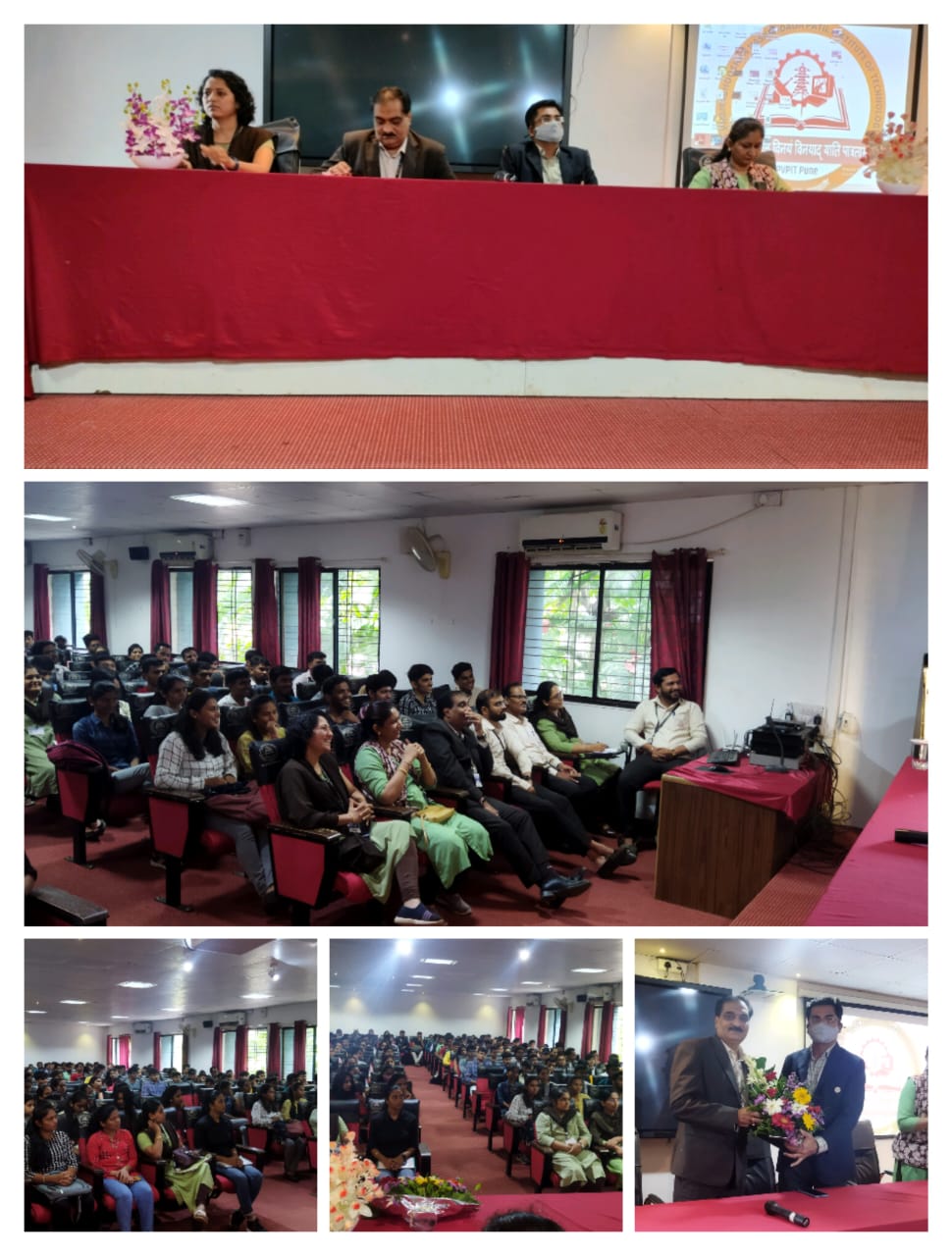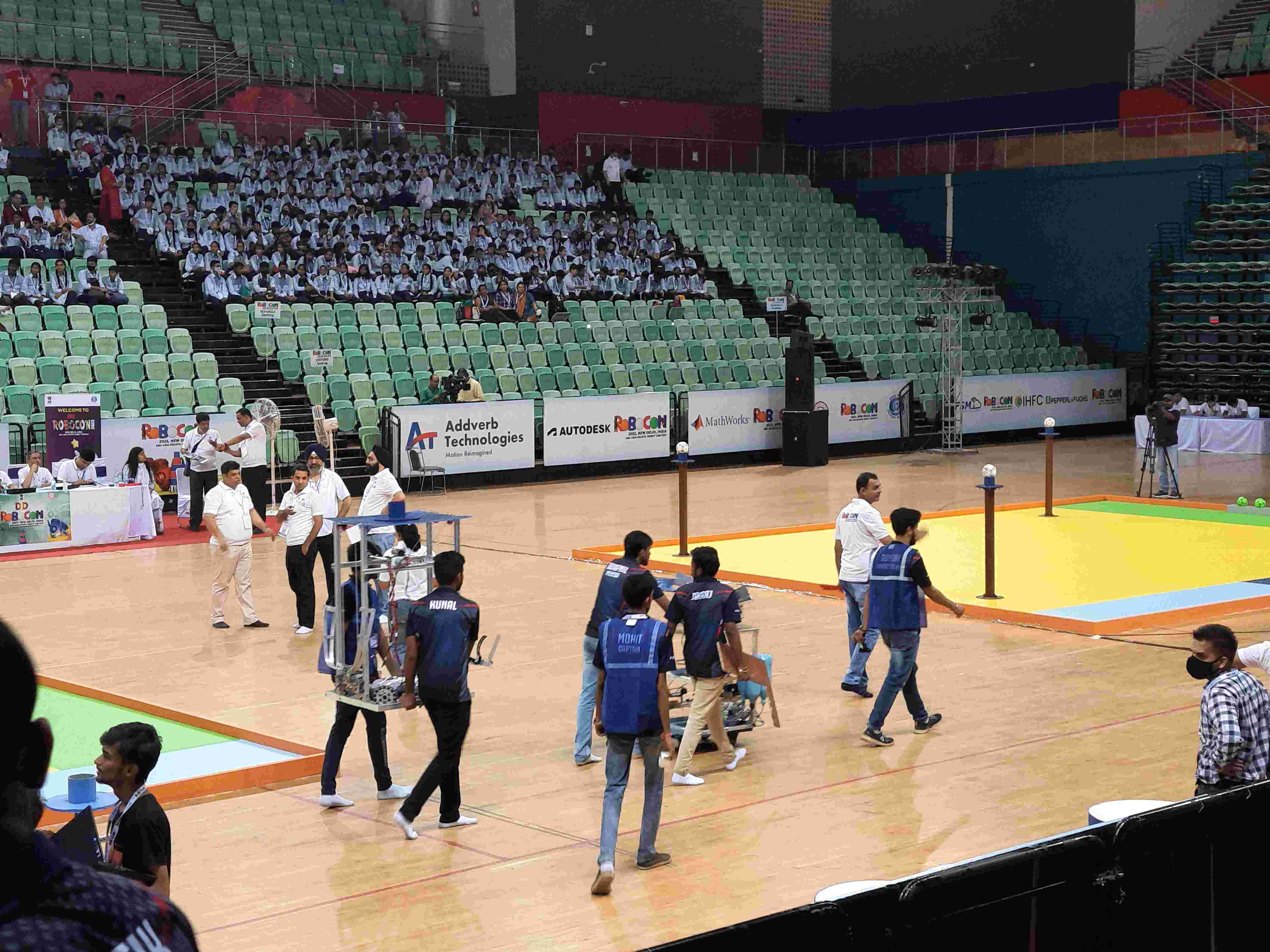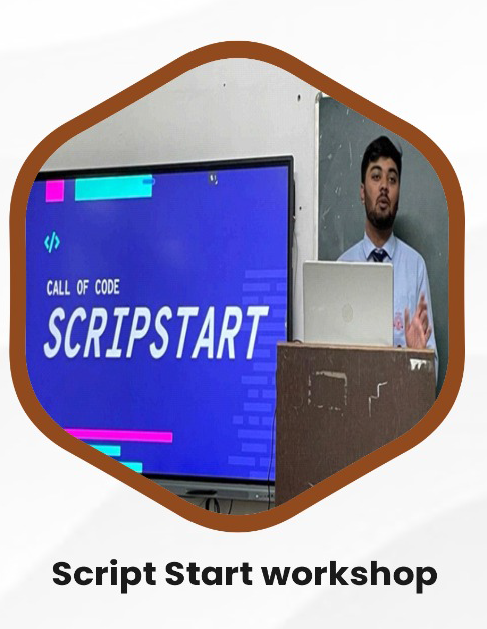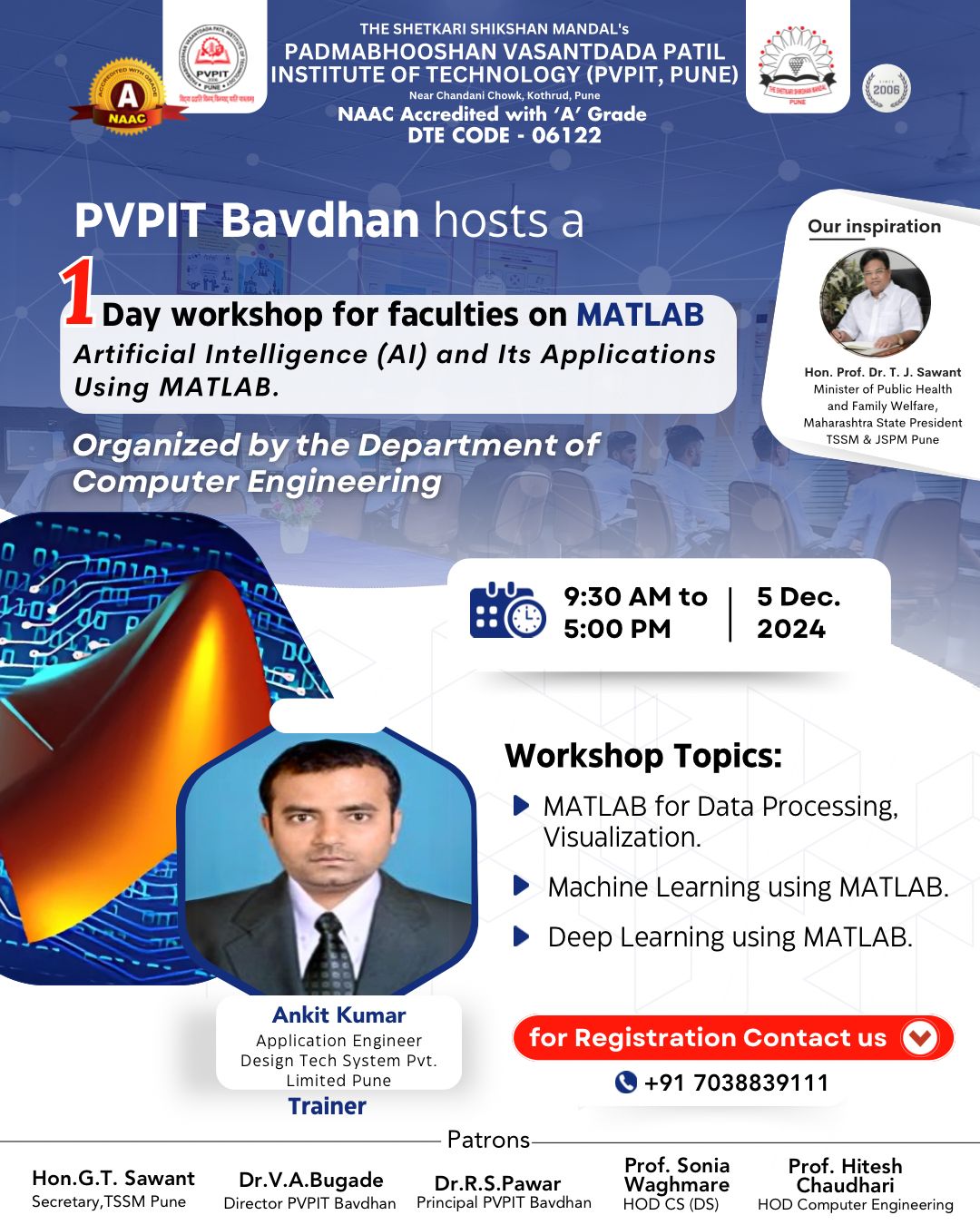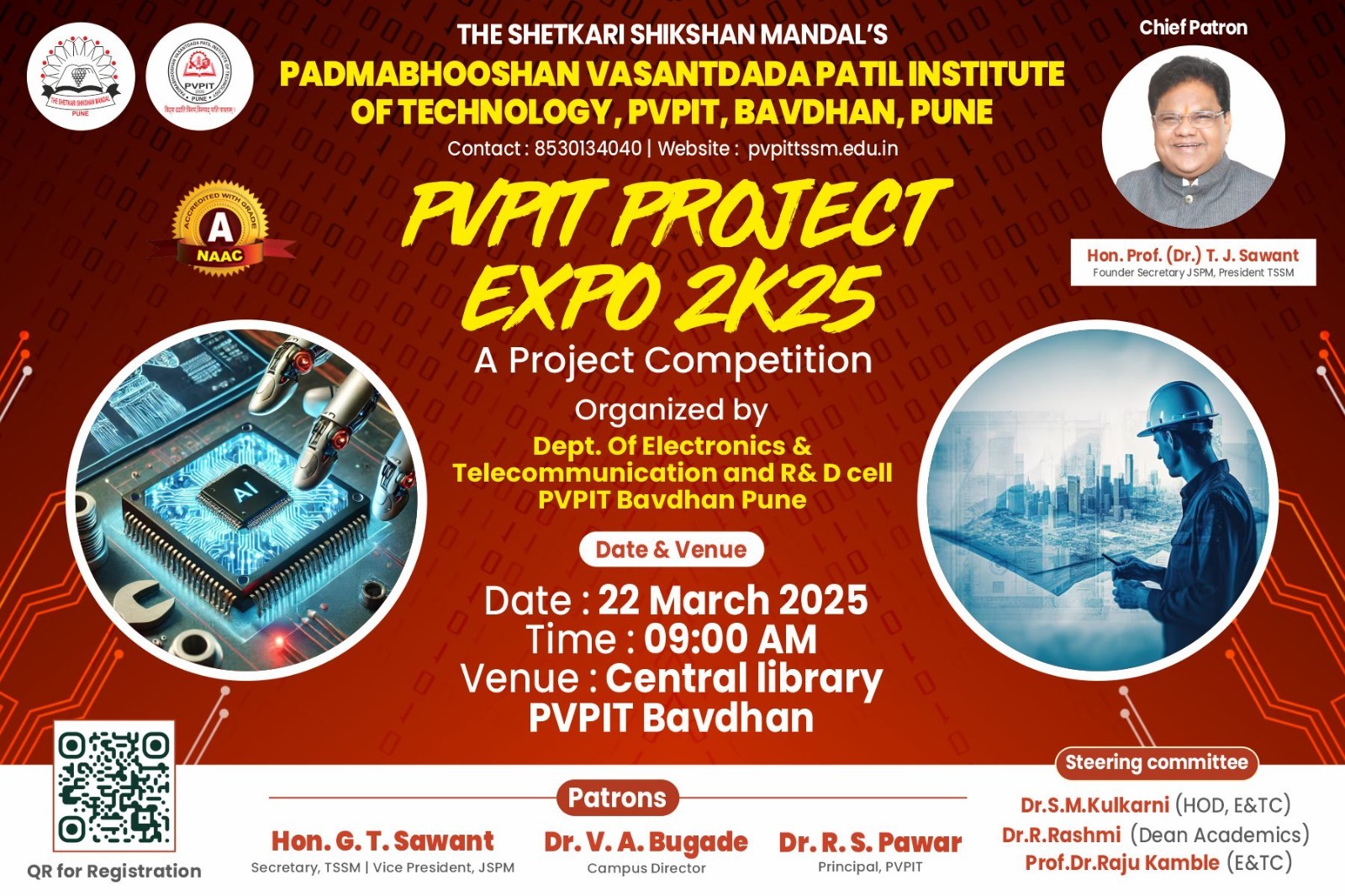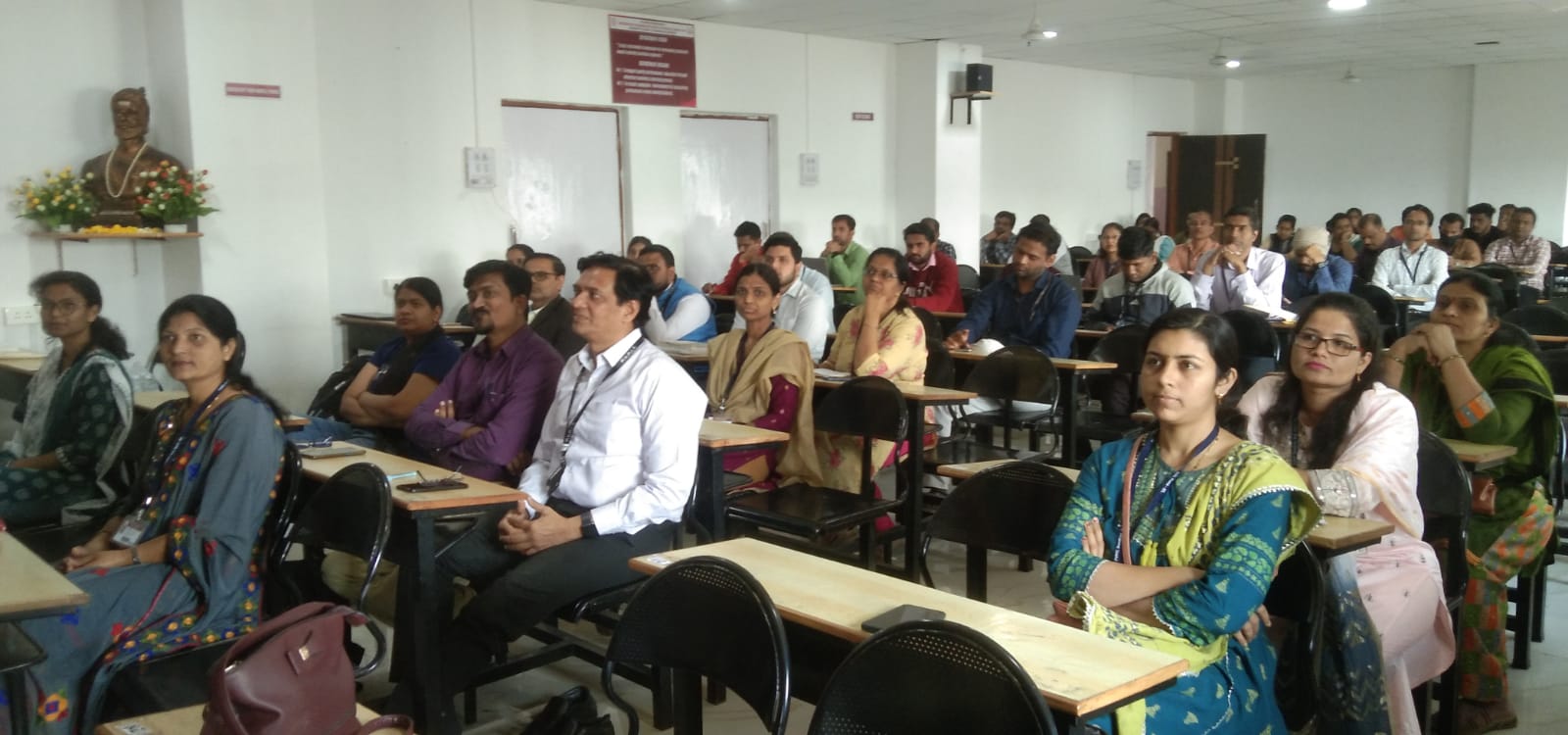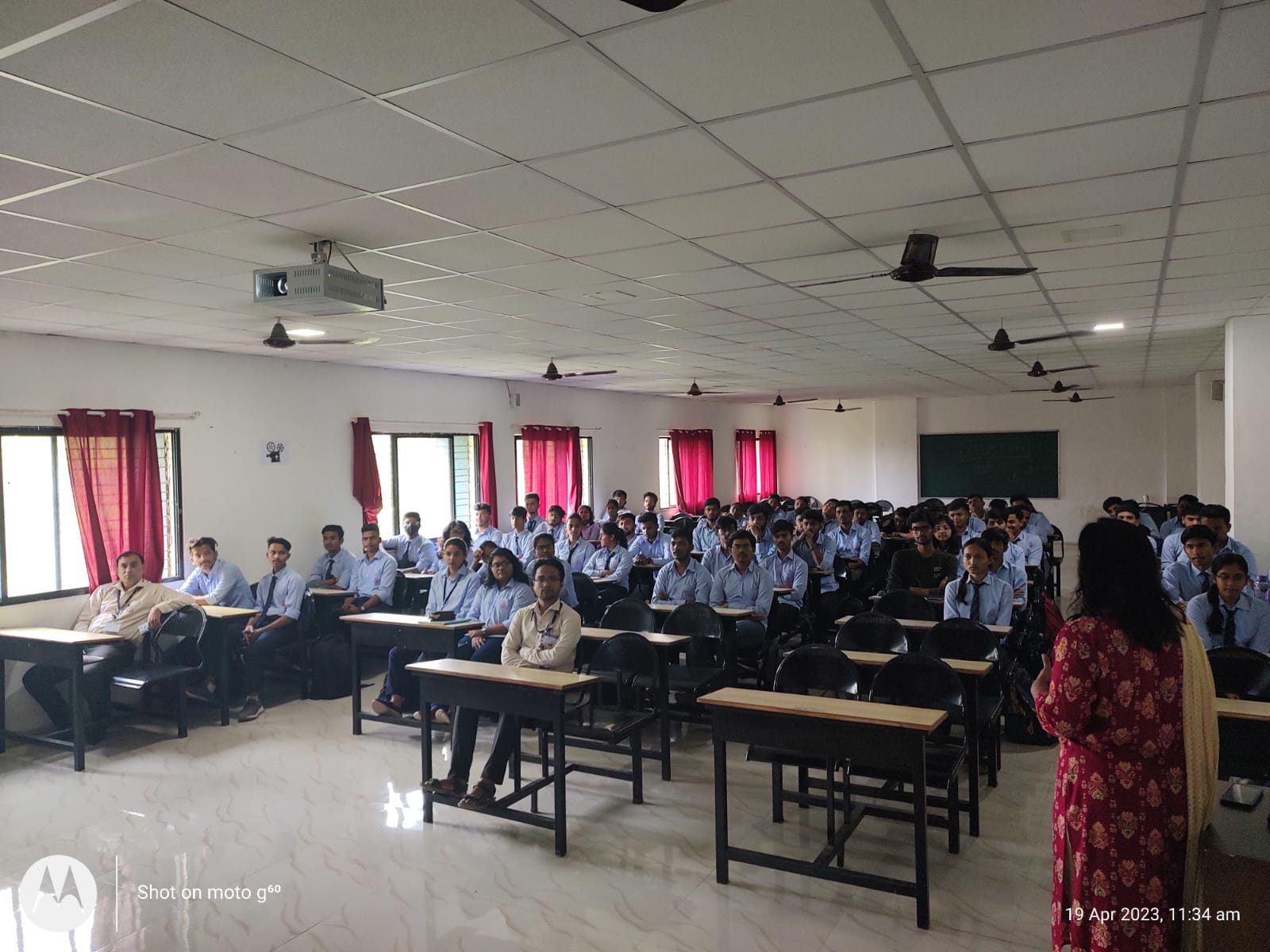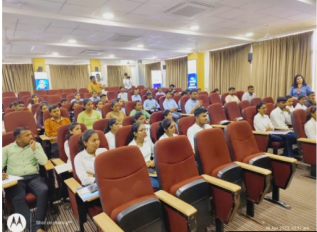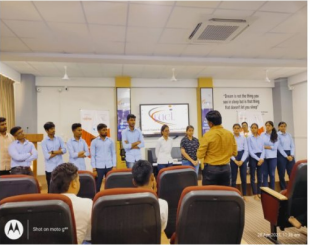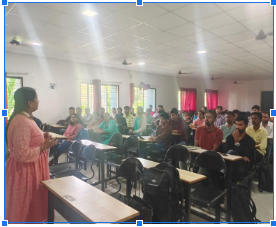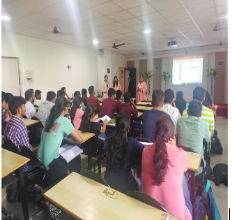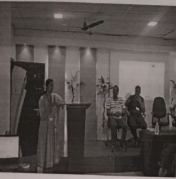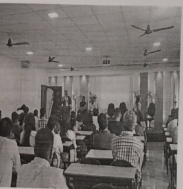Computer Engineering
Computer Engineering can be defined as the technology and science designing, constructing, implementing, and maintaining hardware and software components of contemporary computing systems and equipment that are operated, and monitored through a computer.
The secret in education lies in respecting students. The great difficulty in education is to get experience out of ideas. You cannot teach a person anything, you can only help him find it within himself.
Conventionally, computer engineering has been viewed as the amalgamation of electrical engineering and computer science. However, over the last fifty years it has evolved to become a separate discipline of study. Computer Engineering has a solid basis on the principles and theories of mathematics, applied science, computing, and engineering. It makes the optimum use of these theories and principles for solving technical problems through efficient designing of hardware, software, processes and networks.

Prof. Dr. Sarika S. Jadhav
HOD, Computer Engineering
+91
hod_comp@pvpittssm.edu.in
PHD Computer
Vision
To be a leading department developing competent human resource for benefit of society.

Mission
- To nurture students by imparting quality education.
- To enhance potential of students to be competent professionals by providing conducive environment.
- To enable students for digital world by undertaking industrial and societal issues.
Program Educational Objectives (PEO)
- Have abilities for successful professional career.
- Internet of Things: Have an ability to address real life problem using modern tools and techniques.
- Information security: Have an ability to build enterprise for betterment of society ethically.
Program Specific Outcomes (PSO)
- Computer/Operating System: Understand the basic components of a computer, including CPU, memories, and input/output, design and their organization. Ability to understand the principles , administration and working of Operating systems
- Networking: Develop solutions for networking and security problems.
- Software development: Ability to understand the structure and development methodologies of software systems. Possess knowledge of software design process.
- Database: Provide and implement database solutions to an information technology problem.
- Computing: Ability to apply mathematical methodologies to solve computation task, model real world problem using appropriate data structure and suitable algorithm.
Program Outcomes (PO)
- Engineering knowledge: Apply the knowledge of mathematics, science, engineering fundamentals, and an engineering specialization to the solution of complex engineering problems
- Problem analysis: Identify, formulate, review research literature, and analyze complex engineering problems reaching substantiated conclusions using first principles of mathematics, natural sciences, and engineering sciences.
- Design/development of solutions: Design solutions for complex engineering problems and design system components or processes that meet the specified needs with appropriate consideration for the public health and safety, and the cultural, societal, and environmental considerations.
- Conduct investigations of complex problems: Use research-based knowledge and research methods including design of experiments, analysis and interpretation of data, and synthesis of the information to provide valid conclusions.
- Modern tool usage: Create, select, and apply appropriate techniques, resources, and modern engineering and IT tools including prediction and modeling to complex engineering activities with an understanding of the limitations.
- The engineer and society: Apply reasoning informed by the contextual knowledge to assess societal, health, safety, legal and cultural issues and the consequent responsibilities relevant to the professional engineering practice.
- Environment and sustainability: Understand the impact of the professional engineering solutions in societal and environmental contexts, and demonstrate the knowledge of, and need for sustainable development.
- Ethics: Apply ethical principle and commit professional ethics and responsibilities and norms of the engineering practice.
- Individual and team work: Function effectively as an individual, and as a member or leader in diverse teams, and in multidisciplinary settings.
- Communication: Communicate effectively on complex engineering activities with the engineering community and with society at large, such as, being able to comprehend and write effective reports and design documentation, make effective presentations, and give and receive clear instructions.
- Project management and finance: Demonstrate knowledge and understanding of the engineering and management principles and apply the set one’s own work, as a member and leader in a team, to manage projects and in multidisciplinary environments.
- Life-long learning: Recognize the need for, and have the preparation and ability to engage in independent and life-long learning in the broadest context of technological change.
- conputer network
Course Outcomes (CO)
Object Oriented Programming & Computer Graphics Laboratory
This lab demonstrates familiarity with various concepts of OOPS. Demonstrate class object concepts by using C++ Abstract data types, object instantiation, inheritance, polymorphism, Object oriented programming. Computer graphics deals with generating images and art with the aid of computers. Today, computer graphics is a core technology .
Computer Network Laboratory
Study of different types of Network cables and Practically implement the cross-wired cable and straight through cable using clamping tool. The lab offers an integrated educational process in the field of information and communication technologies emphasizing the issue of computer networks
Patent Programming Laboratory
Each year,students discover new inventions. An invention includes any novel, non-obvious, or useful process, machine, composition of matter, or improvement of any of those three categories. Once a researcher has disclosed their invention, they can then file for a patent, which is a major step in the overall process of federal technology.
Organization:
Aegis Knowledge Trust
Department:
Computer Department
City:
11th Floor,Kukreja Tower,CBD Belapur,Navi Mumbai-400614,Maharahtra.
01 February 2020
Successfully completing the zero to one UI/UX design course in July 2021
Smita Takalkar has successfully completing the zero to one UI/UX design course in July 2021
Venue: PVPIT
20 September 2022
SPPU Topper
SPPU End Semester Results 2021-22
Venue: PVPIT Pune
17 April 2024
Achivement national Runner Up
National Runner Up under Clash od code Competition
Venue:
14 May 2024
National Runner Up of Drone
Meher Baba Drone Competition Runner Up
Venue:
15 October 2024
Ideathon 2024
PVPIT , Our Computer student's team FKB053 from PVPIT has been selected among the Top 25 teams from 150 teams in Ideathon 2024, conducted by Barclays and Capgemini, and reached the Semi-Finals! They delivered a strong presentation i
Venue: Barclays and Capgemini
11 October 2024
TEAM PRIXX
PVPIT Team PRIXX participated successfully at international Level BATTLE OF ROBOTS 2024 at Moscow, RUSSIA.
Venue: Moscow, RUSSIA.
07 December 2024
PVPIT Team Prixx for International Level Achievement!!
Our Students Team Prixx Members 1.Priti Suryavanshi 2.Shreya Boga Winter University program by Yarslova Novgord University, Russia has Participated in Robotics Product d Secured 4th Rank @ Winter university, Russia.
Venue: Winter University program by Yarslova Novgord University, Russia
21 March 2025
Innovation Marathon 2024-25
Out of 626 teams, four students from the Computer Department secured a place in the top 30 teams in the final competition: Ms. Vrushali Khalate\r\nMs.Dnyanashwari Gawade\r\nMs.Nikita Tambade\r\nMs.Amruta Zende\r\n
Venue: Gujarat Technological University (GTU), Ahmedabad, Gujarat.
22 March 2025
PVPIT PROJECT EXPO 2K25
More than 55 Projects have exhibited and about 225 students have participated in the Project expo. and In Computer Department has gpt 1 st Prize in Project Expo
Venue: PVPIT, BAVDHAN
24 February 2022
PVPIT Cricket Team Winner at ATMA MALIK CRICKET CUP
PVPIT Cricket Team Winner at ATMA MALIK CRICKET CUP
Extra-Curricular
12 August 2021
Computer Department Organize Alumni Meet For Student Batches 2020-2021 Online Platform.
Computer Department Organize Alumni Meet For Student Batches 2020-2021 Online Platform.
Co-Curricular
02 August 2022
Experimental learning in python
Experimental learning in python ' under students development program was inaugurated at Department of computer Engineering,PVPIT Bavdhan, Prof.Yogesh Murumkar sir from Bharat Soft Solutions conducted
Co-Curricular
27 July 2022
'Interactive Preplacement talk
'Interactive Preplacement talk' was organized by Department of computer Engineering & Department of E&Tc,PVPIT Bavdhan, Dr. Rao Borade sir from RSCOE encouraged the students of TE and BE on how the p
Co-Curricular
02 March 2022
Personality Development,Skill Enhancement and Motivation
Personality Development,Skill Enhancement and Motivation was conducted by Er.Arshad Sayyad.
Co-Curricular
10 August 2022
Machine Learning Expert Lecture
For BE students Machine Learning Using Python Lecture was taken, to make students aware of recent market trends.
Co-Curricular
24 June 2022
Robocon Team at IIT Delhi
Tech Titans team performing at IIT Delhi
Extra-Curricular
15 June 2022
Robotics Club
Robotics club students at Delhi
Extra-Curricular
23 March 2022
Padma Art Circle
Padma Art circle is a platform where students participate in Firodiya and Purushottam Karandak
Extra-Curricular
17 January 2024
Script Start Workshop by COC
Script Start Workshop under Call of Code Club
Extra-Curricular
05 December 2024
One day Workshop On
Workshop By Mr AMiT KUMAR, Application Engineer at Design TECH SYs.PVt.LTD. on the topic OF 1. Data Processing Visulization 2.Machine Learning using MATLAB 3. Deep Learning by MATLAB
Extra-Curricular
22 March 2025
PROJECT EXPO 2K25
On 22nd March 2025 R&D cell PVPIT have organised PVPIT Project Expo-2k25” for the final students of all branches. More than 55 Projects have exhibit
Co-Curricular
23 March 2022
Expert Session on “Software Module development for Mini Projectâ€
this session is to quickly gear-up a programming experience into the world of Python Programming.
Computer Department
22 March 2022
Website Development
Three days website development with hands-on workshop
VC Room
09 February 2023
Three Day’s Faculty Development Programme on
The core idea of the programmer was to provide a exposure to the faculty and research scholars.
Seminar Hall, Computer Department, PVPIT Pune
13 May 2023
SPPU - IUCAA: visit
An Industrial Visit was conducted by Computer Engineering Department, PVPIT to Inter-University.
SPPU
28 April 2023
How to Write Research Paper & IPR Patent Report
First identify your area of interest. Then read several other papers and articles on the same subj.
Seminar Hall, Computer Department, PVPIT Pune
28 April 2023
Seminar on how to write Research Paper & IPR Patent Report
Career Guidance in IT Field & Awareness of Required skills" Program was conducted on 28/4/ 2023
"FUEL" Training Centre Bhugaon Pune.
25 April 2023
Microprocessor
Expert session on Microprocessor was conducted on 25th April, 2023. Total 49 students were present
Seminar Hall (Computer Engineering)
25 February 2023
Parents Teacher Meet
The Computer Department had organize Parents Teacher Meet on Saturday 25/2/2023 at 11.00 am .
Seminar Hall (Computer Engineering)



